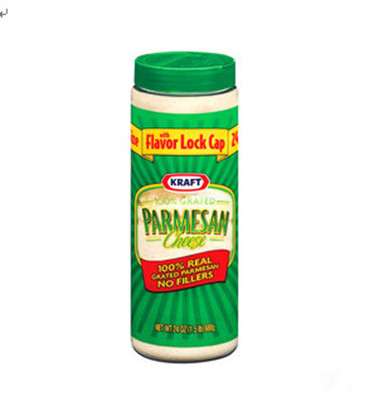食物名稱
Stressed are the cheesemakers
乳酪制造商鴨梨山大
Europeans want their food names back. Americans are peeved
歐洲人想要回他們的食品名稱.這讓老美們很不開心。
IN 1925 Ron Buholzer's family leftSwitzerlandand settled in lush, green, ruralWisconsin. Here, like so many Wisconsinites, his family started to make cheese. Since then four generations of cheesemakers have worked in the family firm. Their most popular product is feta, a crumbly cheese that goes well in Greek salads. Mr Buholzer worries that he may soon be banned from selling it, because the European Union is trying to “claw back” food names that Americans consider generic but which Europeans believe should only apply to products made in specific bits of their continent. That includes feta, Parmesan and maybe even bologna.
1925年,Ron Buholzer家族離開了瑞士定居在繁華、富饒的威斯康辛鄉(xiāng)間。在這兒,他的家族和很多威斯康辛本地人一樣生產(chǎn)乳酪。從那時(shí)起,四代乳酪制造商工作在家族企業(yè)里。他們最受歡迎的產(chǎn)品是羊乳酪,這是一種脆蹦的乳酪,混著希臘沙拉味道可口。Buholzer擔(dān)心他可能很快就要被責(zé)令不準(zhǔn)賣這種商品了,因?yàn)闅W盟正試圖“彌補(bǔ)性回收”食品名稱,這些名稱在美國(guó)人看來(lái)算是同類的商品,而在歐洲人看來(lái)則應(yīng)該只應(yīng)用于專為部分歐洲大陸生產(chǎn)的產(chǎn)品上。這就包括了羊奶酪,帕爾馬奶酪可能甚至包括大臘腸。

Already Mr Buholzer is barred from exporting his feta toSouth Koreaif he calls it “feta”. Also, any new feta products sold in Canada that are not from Greece will soon have to be called “l(fā)ike” or in the “style” of feta—and not use Greek symbols. The EU is demanding protection for 145 food names, including feta, asiago, Gorgonzola,munsterand fontina.
Buholzer已經(jīng)不被允許以“羊奶酪”命名的產(chǎn)品出口到南韓。同樣,任何售往加拿大的心羊奶酪產(chǎn)品,只要不是從希臘出口的,立馬改名為“類似”或“羊奶酪風(fēng)格”—并且不準(zhǔn)用希臘商標(biāo)。歐盟正要求保護(hù)145種食品名稱,其中包括羊奶酪,艾斯阿格芝士,戈?duì)柛炖崭衫遥魉固馗衫乙约耙獯罄饰堆蚰谈衫摇?/div>
American cheesemakers are unwilling to accept this as a feta accompli. On the contrary, they are preparing for a food fight. A group has sprung up to fight the European threat: the Consortium for Common Food Names. Negotiations over the Transatlantic Trade and Investment Partnership, a proposed free-trade deal between the EU andAmerica, may stumble over the issue. The EU, meanwhile, is leaning on governments everywhere to stamp on foodmakers who purloin European names.
美國(guó)乳酪制造商不想接受這種事實(shí)。相反的是,他們正準(zhǔn)備著進(jìn)行一場(chǎng)食品抗?fàn)帯K麄兘⒘艘粋€(gè)小組來(lái)對(duì)抗歐盟的威脅:公共食品名稱聯(lián)盟。在跨大西洋貿(mào)易及投資伙伴協(xié)定框架下進(jìn)行談判,歐盟和美國(guó)已達(dá)成的自由貿(mào)易協(xié)定可能會(huì)在這件事上磕磕碰碰。同時(shí),歐盟正依靠政府部門去禁止偷竊歐洲名稱的食品制造商們。
Americans are unimpressed. They see all this as an attempt to erect trade barriers and raise prices by reclaiming words that have long since passed into general use. Many members of Congress have urged Barack Obama's administration to resist the Europeans' demands. Some will use this as an excuse not to ratify a trade deal unless the EU gives way.
美國(guó)人民很不開心。他們認(rèn)為這種行為屬于建立貿(mào)易壁壘并且利用回收這些早已廣泛使用很久的名稱趁機(jī)提高價(jià)格。很多國(guó)會(huì)成員們已經(jīng)敦促奧巴馬政府拒絕歐洲的提議。一些人希望借助此事為借口禁止一些貿(mào)易協(xié)定的審批除非歐盟在這件事上讓步。
Americadoes offer legal protection for foods from geographic regions under trademark law. For example, Parmigiano Reggiano cannot be called that unless it really comes from the right parts ofItaly. Likewise, Americans may call fizzy wine fromCalifornia“champagne”, but that is not what it says on the bottle. There is no easy way to determine which names deserve protection. Are French fries safe? Or Italian dressing? Or even that symbol of American pride, the hamburger?
在商標(biāo)法里,美國(guó)確實(shí)為地理區(qū)域食品名稱提供了法律保護(hù)。例如,除非帕爾瑪干酪真正來(lái)自意大利的帕爾瑪,否則不能任何叫做這個(gè)名字。同樣的,美國(guó)人們也會(huì)稱加州的泡沫酒為“香檳”,但是在包裝瓶上沒(méi)這么寫。決定哪些名字應(yīng)該受到保護(hù)絕不是件簡(jiǎn)單事。薯?xiàng)l這個(gè)名字很安全嗎?意大利調(diào)味料呢?甚至是美國(guó)人民驕傲的象征,漢堡呢?












